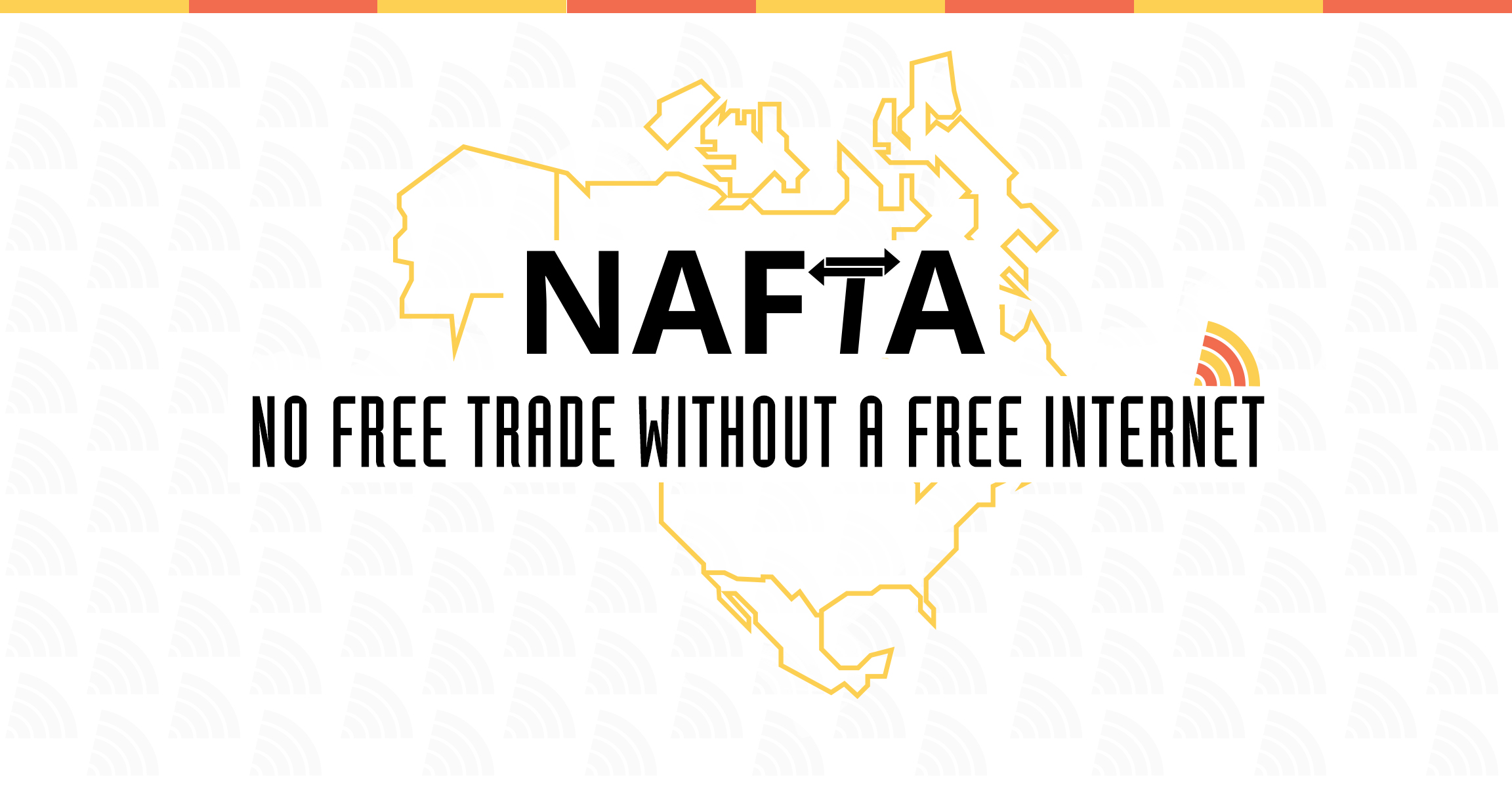The North American Free Trade Agreement (NAFTA) is being renegotiated with little to no transparency at the expense of those who will feel its effects the most: everyday citizens. Interest groups and corporations are “fishing in troubled waters,” scrambling to take advantage of this opacity to shape the agreement to their benefit.
Here are three ways in which the Canadians would feel the effects of this closed-doors renegotiated NAFTA. It doesn’t look pretty.
Endangering access to affordable medicine
While it is copyright what usually keeps us occupied at OpenMedia, the draconian expanse of intellectual property policies affects other aspects of our lives, too. The cost of medicine is one of the clearest examples of the impacts of outdated patent and intellectual property policies.
Pharmaceutical corporations are given a period of time in which they have the exclusive rights to sell the product they developed. During this time, they can make up for the cost of the expensive processes of research and development of their product. After that period expires, the patented formula is released for other laboratories to produce and release medicines (usually) at a lower price. In a nutshell, this is how we get the more affordable “generic” or “non-brand” versions of drugs.
NAFTA is threatening this process. Big Pharma is seeking to expand the periods of exclusive rights to sell medications, a.k.a. patents. These legal monopolies have made the headlines for their nefarious price-gouging practices in the United States, and there is no doubt that big corporations will try to expand these practices into Canada.
In other words, your access to affordable medicine in Canada could be gone or drastically reduced under NAFTA.
Making Canada’s Internet subject to extrajudicial blocking systems
The Internet as we know it in Canada is under threat. This sounds alarming, but this is not a far-fetched argument. Bell Canada has openly stated that it wants to introduce extrajudicial website-blocking systems into the policies being discussed during the NAFTA renegotiations.
What does this mean for the average Canadian?
Blocking systems are nothing new. Bell has suggested the creation of a “blacklist” of websites and a third-party body to monitor the blocking of blacklisted sites without due process. Bell takes it a step further by requesting that these blocking systems come accompanied with criminal provisions — which might capture people who engage in legal, fair, and normal use of the Internet.
Imagine being sent to court for exercising your right to free speech? If this seems excessive to you, Canadians can speak out here to stop this reckless proposal.
Your health records in the hands of the United States
Lastly, are you OK with your sensitive personal information, including health records, in the hands of the U.S. government or corporations? Regardless of who’s in charge of the American administration, having Canadians’ sensitive data stored in places where Canadian law has no oversight is a big risk. In fact, British Columbia and Nova Scotia have laws that require that sensitive private information under public bodies be stored within Canada, and federally speaking all “sensitive or protected data under government control” should be stored within Canadian borders.
However, the U.S. wants to do away with these protections. Their official stance is to “establish rules to ensure that NAFTA countries do not impose measures that restrict cross-border data flows and do not require the use or installation of local computing facilities.” This means that school, university, hospital, and other Canadian data collected by government entities are at serious risk of losing the government protections that they currently have.
While corporations argue that data localization protections are a move that hinders innovation, they have yet to show how or in any case, why it would be worth it to trade Canadians’ rights to privacy in the name of profit. If this doesn’t seem right to you, you are not alone.
These are only three ways — of many — in which corporations, interest groups, and even countries are taking advantage of the lack of transparency surrounding NAFTA to bend the rules in their favour. You can learn more and take action here or follow OpenMedia on Facebook and Twitter to stay up to date in the fight to keep the Internet safe from predatory trade agreements.
Marianela Ramos Capelo is a graphic designer and part of the communications team at OpenMedia, a community-based organization that works to keep the Internet open, affordable, and surveillance-free.
Photo: Blogpreneur
Like this article? rabble is reader-supported journalism.




